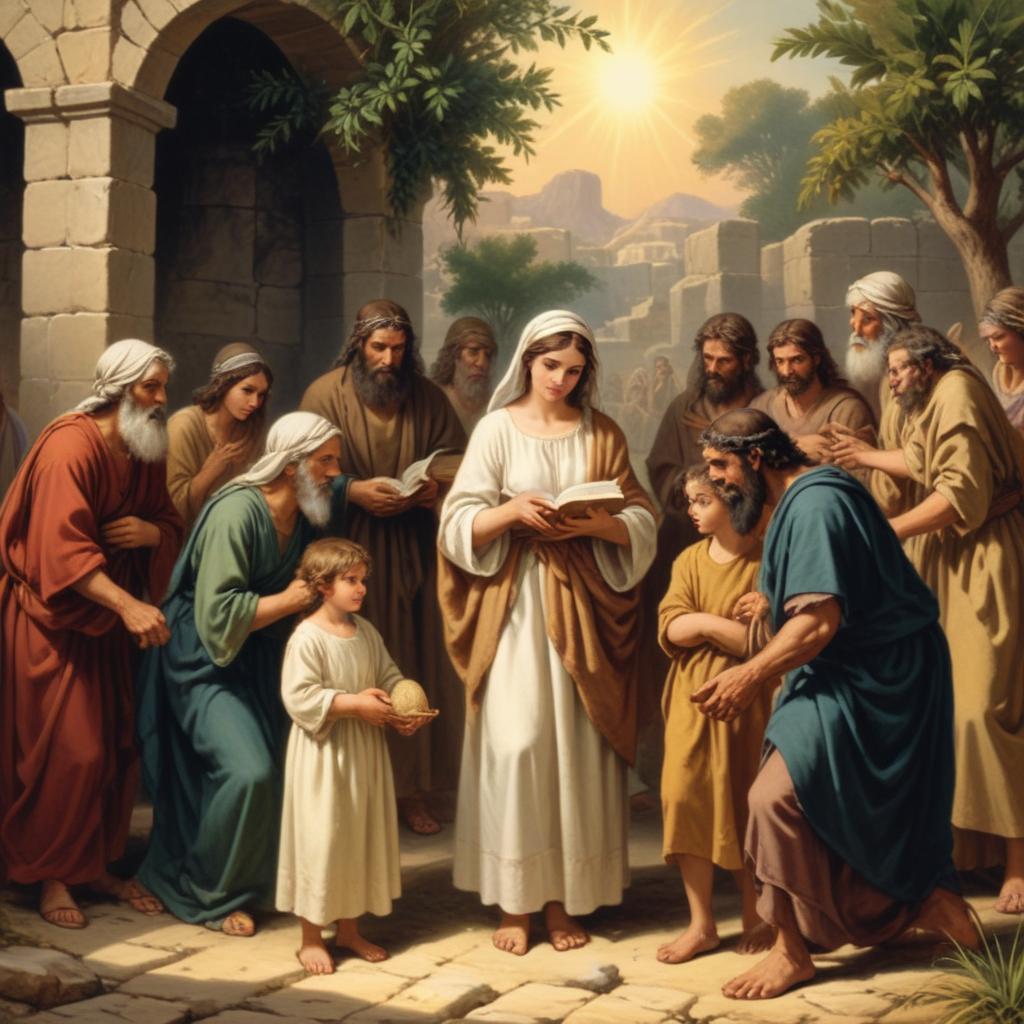Welcome to our Hosea 1:4 Quiz on Hosea’s children born with symbolic names! In the book of Hosea in the Bible, God instructs the prophet Hosea to give his children names that represent the spiritual condition of the people of Israel. These names serve as a powerful message from God to His people about their relationship with Him. Hosea’s first son is named Jezreel, which means “God sows.”
This name symbolizes the scattering of the people of Israel by God due to their disobedience and sin. Hosea’s daughter is named Lo-Ruhamah, which means “not loved.” This name signifies God’s judgment on the people of Israel for turning away from Him. Through the names of Hosea’s children, God is calling His people to repentance and to return to Him.
Play Hosea 1:4 Quiz
Instructions
- This quiz is multiple choice.
- Read each question carefully before selecting an answer.
- Choose the best answer for each question.
- You will see the missed questions with correct answers at the end of the quiz.
Related Product
Clever Fox Bible Study Journal
Clever Fox Bible Study Journal features detailed writing prompts to guide your Bible reading journey, helping you keep organized reading notes and reflect on the verses you read.
This site contains affiliate links and I will earn a commission if you purchase through this link. I only recommend products that I think are relevant and useful.
Quick Facts
- Hosea’s first child was named Jezreel, which means “God sows.” This name symbolized the impending judgment on the house of Jehu for the bloodshed at Jezreel.
- The second child was named Lo-Ruhamah, meaning “not loved.” This name represented God’s rejection of Israel and his withdrawal of his love and protection.
- Hosea’s third child was named Lo-Ammi, which translates to “not my people.” This name signified Israel’s separation from God and the loss of their special relationship with him.
- These symbolic names served as a warning to the people of Israel about the consequences of their disobedience and idolatry.
- Despite the negative connotations of their names, these children were still beloved by Hosea, demonstrating God’s enduring love and mercy for his people.
- Hosea’s children’s names were a powerful message from God about the spiritual condition of Israel and the need for repentance and reconciliation.
- Through these symbolic names, God was calling Israel to return to him and renew their covenant relationship.
- The names of Hosea’s children were a visual representation of the broken relationship between God and his people, illustrating the need for reconciliation and forgiveness.
- These symbolic names were a stark reminder of the consequences of turning away from God and the importance of remaining faithful to him.
- Ultimately, the story of Hosea’s children with symbolic names serves as a powerful lesson about God’s unfailing love, his desire for reconciliation, and the importance of remaining faithful to him.
Scripture
Chapter 1
4 And the LORD said unto him, Call his name Jezreel; for yet a little while, and I will avenge the blood of Jezreel upon the house of Jehu, and will cause to cease the kingdom of the house of Israel.
5 And it shall come to pass at that day, that I will break the bow of Israel, in the valley of Jezreel.
6 And she conceived again, and bare a daughter. And God said unto him, Call her name Loruhamah: for I will no more have mercy upon the house of Israel; but I will utterly take them away.
7 But I will have mercy upon the house of Judah, and will save them by the LORD their God, and will not save them by bow, nor by sword, nor by battle, by horses, nor by horsemen.
8 Now when she had weaned Loruhamah, she conceived, and bare a son.
9 Then said God, Call his name Loammi: for ye are not my people, and I will not be your God.


